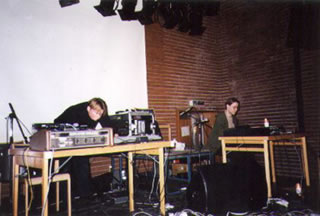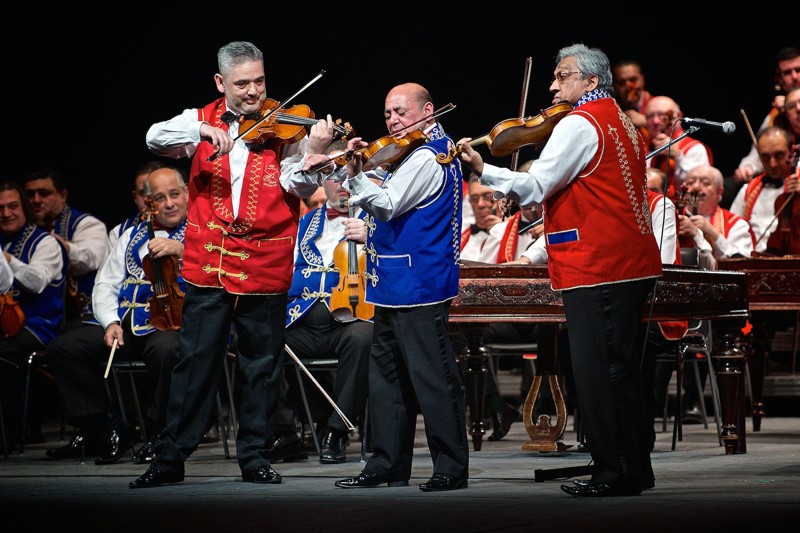Peter Nyström is the man be’ind projects like Megaptera and Negru Voda. His new album — titled Dobruja Region — is out. Harsh, beating rhythm and noise, but not only…
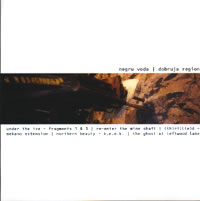 Fabrizio Garau (FG): Peter, you had a huge impact on the Swedish (and non Swedish) industrial ambient scene. What do you think you added to the industrial sound of the Nineties and what’s your relationship with the renowned generation of pioneers of this form of expression (Throbbing Gristle, SPK, Test Dept)?
Fabrizio Garau (FG): Peter, you had a huge impact on the Swedish (and non Swedish) industrial ambient scene. What do you think you added to the industrial sound of the Nineties and what’s your relationship with the renowned generation of pioneers of this form of expression (Throbbing Gristle, SPK, Test Dept)?
Peter Nyström (PN): Did I?! Not much, as far as I know. Honestly, I don’t have a clue.
SPK and especially Test. Dept are important to me. Test. Dept’s Beating the Retreat, The Unacceptable Face of Freedom and Goddodin are on my top 10 list of industrial records. SPK’s Auto-Da-Fe is a great record!
I have never listened to Throbbing Gristle.
FG: The birth of industrial music has been associated to adjectives like “experimental” and “provocative”. Do you try to be experimental and provocative or are you trying simply to give us “an impulse of fear”? Or am I talking about the same things?
PN: I have never tried to be provocative. Not my cup of whisky. Experimental is rather the word. But not only. Some of my releases are more experimental than others. I like to play with field-recordings and radio-frequencies. And of course I try to deliver some creepy feelings as well…
FG: Magnus Sundström is a long time friend and collaborator (i.e., your new album is out for his label). How could you describe your artistic relationship with him?
PN: He is the hub in the recording process. He programs the computer, he mix and he does the mastering. He comes with ideas of which effects are suitable, and stuff like that. He is also very talented when it comes to artwork. Minimalist, beautiful and clean. He’s a great friend!
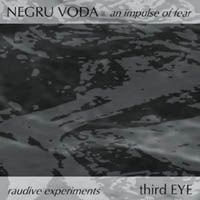 FG: Let’s talk about “Negru Voda”: in my opinion, a perfect name for your project, because I associate it to something wild and unknown (at least for occidental Europeans). And the title of your new album, Dobruja Region, maintains the link with Romania. How did the idea come out?
FG: Let’s talk about “Negru Voda”: in my opinion, a perfect name for your project, because I associate it to something wild and unknown (at least for occidental Europeans). And the title of your new album, Dobruja Region, maintains the link with Romania. How did the idea come out?
PN: I wanted to “tie the sack together”. Negru Voda is a small Romanian village, heading in Dobruja Region. Like a celebration to the band name. It also fit the music, quite nicely.
FG: As a web magazine dealing also with postmodernism, we loved the way you re-invented a movie (“John Carpenter’s Thing”) creating “An impulse of fear”. Again, how did the idea come out and what’s your relationship with cinema?
PN: Thanks! I love The Thing. Definitely a favourite! One of the first “scary” movies I watched.
It was a spontaneous idea as usual. There are not very much original music in those 30 minutes I use, and the scenes are wonderful to hear in the background of my “new” soundtrack.
FG: Re-inventing the “Thing” you also got in touch with the lord of movie soundtracks: Ennio Morricone.
What can you tell us about your approach to his work?
PN: Honestly, I don’t know anything about him. Sorry!
FG: Dobruja Region: cold and desolate landscapes and menacing machines are suggested by a sober and functional artwork. Can we say that you focused your attention to two obsession of Swedish industrial-ambient music?
PN: I have always been interested in that combination. Probably other Scandinavian bands too.
I think it’s natural when you live up here. I have also been working in a big steelworks for 13 years, so I definitely know how the machines sound like.
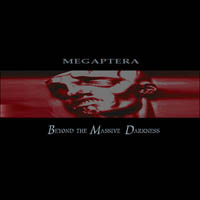 FG: Dobruja Region presents new tracks and some new versions of old tracks (once appeared on vinyl): you show different sides of your creativity (i.e., the pure ambient of tracks like “Northern Beauty” and “The Ghosts at Leftwood Lake) and I consider it a very good thing, but I have to confess that — as for acts like In Slaughter Natives — I appreciate particularly the way you use “percussive” sounds. How much is important for you to donate tribal or machinelike rhythms to your tracks? What’s their function in the context of your works?
FG: Dobruja Region presents new tracks and some new versions of old tracks (once appeared on vinyl): you show different sides of your creativity (i.e., the pure ambient of tracks like “Northern Beauty” and “The Ghosts at Leftwood Lake) and I consider it a very good thing, but I have to confess that — as for acts like In Slaughter Natives — I appreciate particularly the way you use “percussive” sounds. How much is important for you to donate tribal or machinelike rhythms to your tracks? What’s their function in the context of your works?
PN: I must have good rhythms in my music! Not necessarily drums, but some kind of rhythm must be there. I love machine sounds so much, I think it’s just inside me. With a few exceptions of course, for example the two tracks mentioned above. The function is to try to re-create the environment I have been impressed by at my work, and to force the music ahead and kick ass!
FG: Acts like Raison d’être or The Protagonist have a certain spiritual — maybe religious — side. Your previous project Megaptera and Negru Voda are often absolutely “physical” in my ears. Is it a conscious move or do you simply have a different sensibility?
PN: I want my music to be receipted as just music. Nothing else. As the masters of industrial music, Cabaret Voltaire, sings: “This is entertainment, this is fun”. Physical and emotional without any special messages. But I do get influenced about things happening around the world, and sometimes I put a little of that somewhere in the music. Or in the titles. But not much.
FG: “Northern Beauty” is one of my favourite tracks of your last album: minimal, evocative, and a bit disquieting. I would define it “a classic”. What’s your relationship with Scandinavian landscapes?
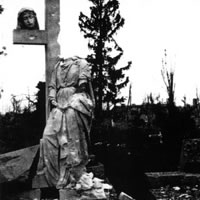 PN: Thanks for the kind words about that song! It’s dedicated to my wife.
PN: Thanks for the kind words about that song! It’s dedicated to my wife.
I moved up here to the north of Sweden just before we got married, and of course the landscape has impressed me a lot. I try to take photos when I’m travelling around, because I know they can be very useable to have when it comes to artwork. The Scandinavian landscapes are really majestic!
FG: Usually in your interviews I don’t find questions regarding electronic music in general. So, talking about minimalism… Today, not only Swedish ambient music has this characteristic: there’s the “Warp Records sound”. What’s your opinion about this label and the artists involved in it? And, as a listener, are you into different kind of electronic music?
PN: I hear people talk a lot of the “Ant-Zen-sound”, sometimes. Converter and bands like that. I’m afraid I’m not very familiar with Warp Records. As a listener, I’m still in the late 70’s and 80’s, when it comes to electronic music. Cabaret Voltaire, Test Dept, Severed Heads, Kraftwerk, Tangerine Dream, early Human League, Ultravox (with Midge Ure) and The Klinik. There are also a bunch of Belgian bands that I still enjoy listening to a lot: The Neon Judgement, Poesie Noire, A Split-Second, Front 242… I’m also a big fan of Ulf Söderberg and Magnus Sundström music.
FG: With this album you are back on track and I guess it will be a success: what are your future projects?
PN: It was a relief to finally have the album in my hands! Definitely the best and most personal music I have made this far. I have already been playing some of the tracks live, and I get an even bigger kick for each time! I have no special future plans. Performing more than I have done in the past would be nice. Magnus and I will go to Lithuania in early December. We will perform as des Esseintes, Negru Voda, and Megaptera. Would be nice to record another album as Negru Pvlse together with Mathias Josefson of Moljebka Pvlse. We will see how things turns out.
